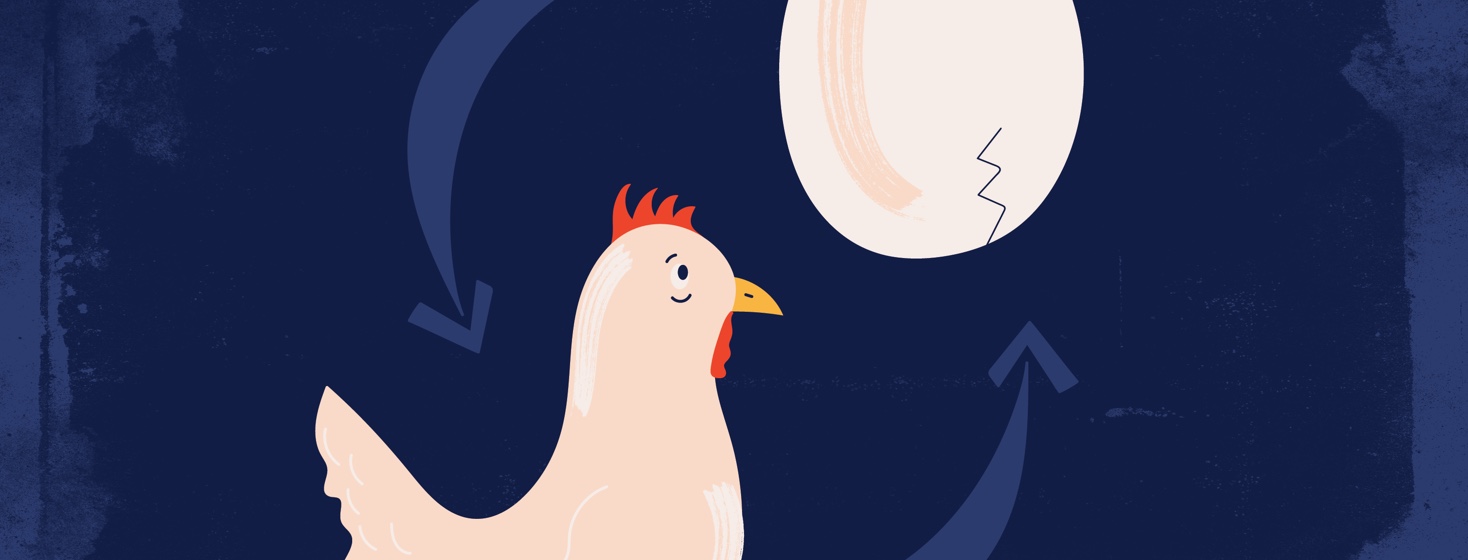Insomnia and Depression: Cause or Effect?
Insomnia can lead to depression. Depression can lead to insomnia. Round and round we go on the carousel of sleeplessness and despair. I have been on this ride long enough. Stop and let me off, please.
While we could have a lengthy "chicken or the egg" debate about which was first, does it matter? In the end, they are both still present in varying degrees. It matters not which one triggered the other. Treatment would remain the same. What matters is one complicates the other.
Depression, anxiety, and insomnia
Let’s discuss mental health and its impact on insomnia. Depression can cause you to sleep for extended hours or lie awake staring at the ceiling for hours on end. You never know which way it will go until it has happened. This starts a cycle that is hard to manage. A lack of sleep can further agitate depression, and depression can cause insomnia.
Do not misunderstand me. I am not severely depressed. I take medication to stabilize my moods, and that has kept me from falling into a pit of despair. Anxiety still exists. Anxiety agitates my insomnia, and insomnia agitates my anxiety. Mental health can play a big role in sleep patterns, and sleep patterns can play a big role in mental health.
The importance of treatment
Did insomnia cause my mental health issues or did my mental health issues cause my insomnia? It does not matter. What matters is recognizing when treatment is required. When either condition is left untreated, it can lead to much bigger problems. The connection between insomnia and mental health is undeniable. While insomnia can have many causes, it can lead to anxiety or depression. Issues with anxiety or depression can lead to insomnia.
If depression or anxiety is affecting your sleep, it is time to talk to your doctor. If a lack of sleep is creating anxiety, a visit to the doctor is warranted. Determining if treatment is needed or would be beneficial is an important step in taking care of your mental and physical health.
Recognizing signs of mental health issues
Some symptoms of insomnia mirror symptoms of depression. Getting treatment as early as possible can prevent severe depression, so it is important to pay attention to your moods.
If you have any of these symptoms or notice worsening of these symptoms, speak to your doctor to determine if depression might be the cause:
- Memory problems or trouble concentrating
- Feelings of worthlessness, hopelessness, or helplessness
- Worsening insomnia or increased sleep
- Irritability
- Loss of interest in favorite activities
- Loss of appetite or increased appetite
- Digestive problems
- Aches and pains that do not go away
- Persistent anxiety or sadness
- Suicidal ideation
Open discussion of mental health
If you think you may have depression or you are experiencing worsening anxiety, it can make your insomnia worse. A lack of sleep can make depression worse. Insomnia is a big problem alone, but adding depression to the mix can create a dangerous situation. Your doctor can help determine how to best treat either or both issues. Cognitive behavioral therapy may be helpful.
I have suffered from insomnia and mental illness for decades. The stigma surrounding mental illness prevents many people from openly discussing these issues. This is an important conversation, and your mental health is just as important as physical health.
Are you an insomniac who also has depression, anxiety, or other mental health issues? You are not alone. Sharing our experience allows other people to know they are not alone, and it encourages others to come forward. Open conversations promote a sense of normalcy. Reduce the stigma. Let’s talk about it.
Join our site and share your experience in the comments below.

Join the conversation